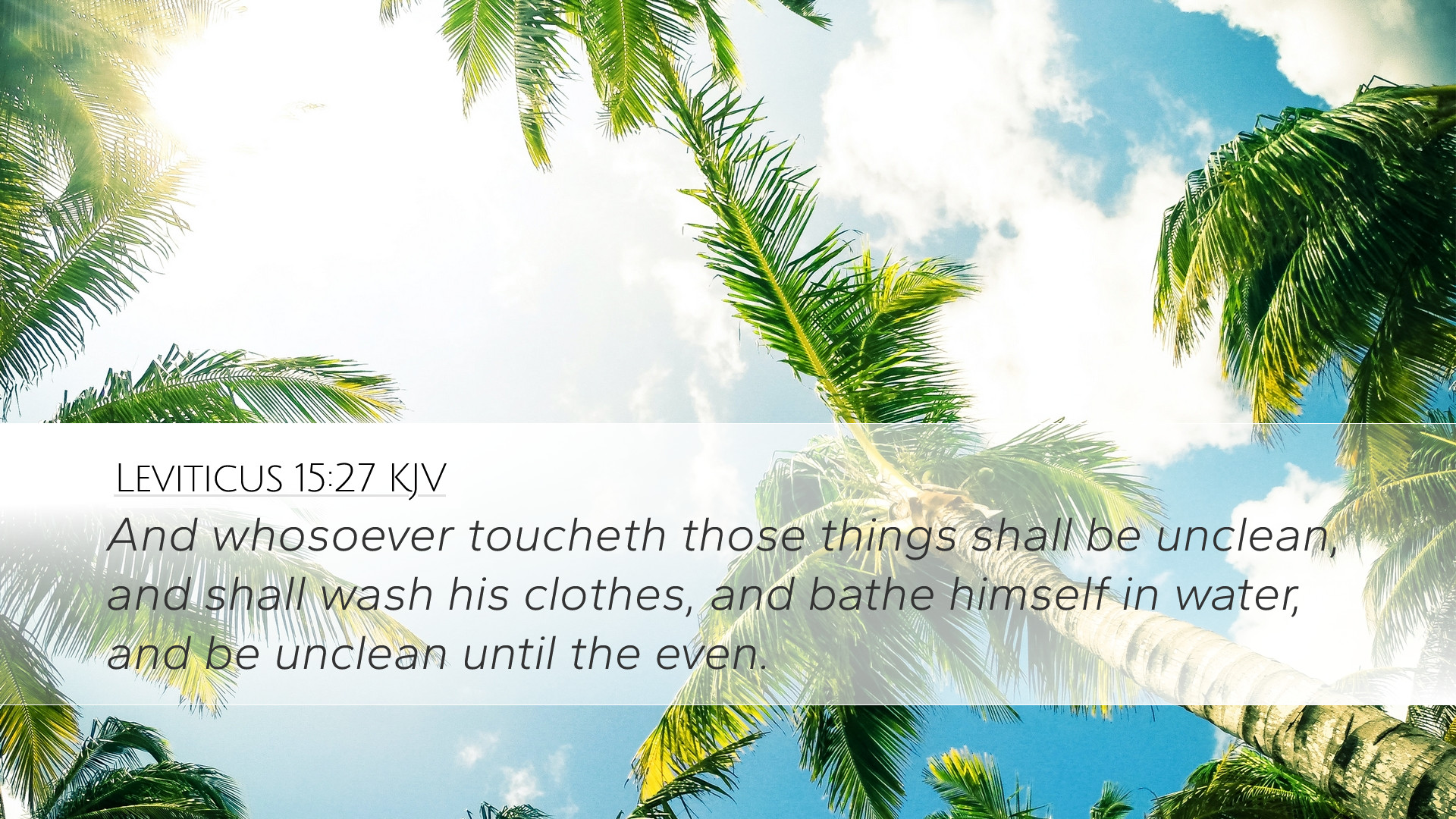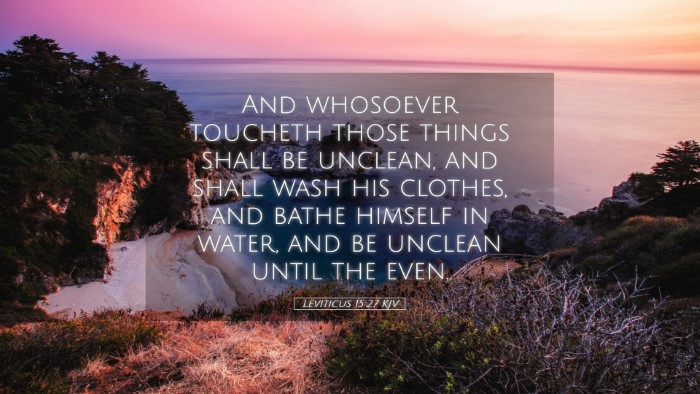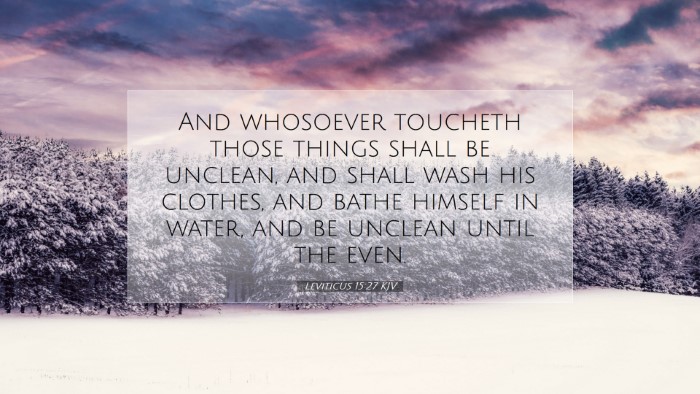Commentary on Leviticus 15:27
Verse: Leviticus 15:27 - "And whosoever touches those things shall be unclean, and shall wash his clothes, and bathe himself in water, and be unclean until the evening."
Introduction
The verse found in Leviticus 15:27 is part of the broader context of the legislations concerning bodily discharges and their implications on ritual cleanliness. Understanding this passage requires an exploration of the cultural, historical, and theological significance found within the laws of ritual purity in the Old Testament.
Overview of Ritual Purity in Leviticus
The Book of Leviticus is often viewed as a manual for the priests and the peopleof Israel, filled with laws that govern purity, worship, and community ethics. Leviticus 15 specifically addresses issues of bodily discharges, which could include menstruation, emissions, and other bodily fluids. The implications for those who came into contact with the unclean person or their belongings are critical in understanding communal holiness.
Contextualizing Leviticus 15:27
According to Matthew Henry, the laws concerning uncleanness that are outlined in this chapter serve not only to maintain physical cleanliness but also to uphold spiritual purity. The severity of being deemed "unclean" underscores a principle that permeates the Hebrew Scriptures: that God demands separation from sin and impurity.
Insights from Albert Barnes
Albert Barnes' commentary emphasizes the gravity of touching items that are deemed unclean. His insight reveals that this law places significant boundaries around personal and communal interactions, ensuring that the state of impurity does not spread within the congregation. This regulation serves a dual role; it is both a societal safeguard and a spiritual discipline, reminding the Israelite community of their identity as a holy people.
Adam Clarke's Interpretation
Adam Clarke provides a detailed exegesis, suggesting that the repeated call to wash and separate certain garments signifies a thorough cleansing process. This physical act symbolizes the need for purification of the entire being, reiterating that connectivity to the unclean results in the need for spiritual renewal. Clarke also explores themes of moral and ethical living that flow from these purity laws.
Theological Implications
The Jewish purity laws, as explicated in Leviticus 15:27, illustrate the holistic view of cleanliness—both physical and spiritual—that underpins the covenantal relationship between God and His people. As noted by Matthew Henry, this verse acts as a reminder that sin and impurities corrupt not only individuals but the community at large. Therefore, awareness and action must be taken to preserve the communal integrity.
Christian Perspective
From a New Testament perspective, the implications of Leviticus 15:27 can be related to Christ's work of atonement. Albert Barnes emphasizes that, while the laws served their purpose in the Old Covenant, the coming of Christ fulfilled the need for purification and ultimate cleansing from sin. The act of washing from uncleanness correlates to the spiritual cleansing that believers experience through faith in Christ.
Practical Applications for Modern Believers
Contemporary faith communities can derive critical lessons from Leviticus 15:27:
- Awareness of Spiritual Influence: Believers are reminded to be conscious of spiritual influences and interactions.
- Community and Holiness: Maintaining a congregation’s holiness involves understanding and addressing spiritual impurities among its members.
- Personal Responsibility: Just as the law called for personal cleansing, so too are believers called to responsibility in maintaining their spiritual lives.
Conclusion
Leviticus 15:27 is a multifaceted verse that speaks not only to the ritual practices of the ancient Israelites but also offers valuable insights into the nature of purity and holiness in the life of faith. The comments drawn from Matthew Henry, Albert Barnes, and Adam Clarke collectively underscore the timeless relevance of these ancient directives for contemporary believers, prompting reflections on personal holiness and collective responsibility in faith.


